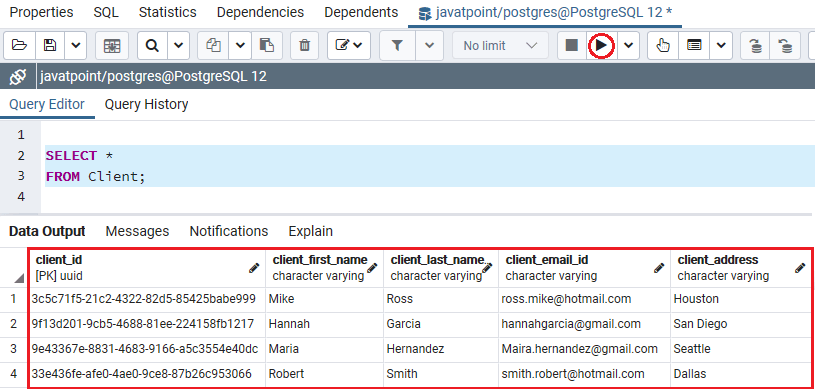

Here's an example where a table users uses UUIDs for its primary key. RANDOM_BYTES() was introduced in MySQL v5.6.17 (2014), and is currently not available in MariaDB. This uses RANDOM_BYTES() instead of RAND() because the former is non-deterministic and therefore more cryptographically secure, resulting in fewer UUID collisions in the end. RETURN LOWER(CONCAT( '-', '-', '-', '-', a version without variables, to remove any overhead they might add: CREATE FUNCTION uuid_v4() RETURNS CHAR( 36) 1st group is 12 characters = 6 bytes SET = HEX(RANDOM_BYTES( 6))
#Mysql uuid generator how to#
So, for instance, UUID.randomUUID() will generate a new UUID. UUID in PHP MySQL How to generate Unique Id Auto Generate Code UUID Auto Generate Universal Unique ID PHP MySQL Tutorial Github From Download : ht. This class, contains a static method to generate a random UUID. First, the all java method: As of Java 1.5, Sun has incorporated a UUID class within the standard edition API. But, there is no way to fetch the last inserted UUID, which requires that an extra select statement be done each time I insert. 4th group is 4 characters = 2 bytes, starting with a: 8, 9, A, or B SET = CONCAT(HEX( FLOOR(ASCII(RANDOM_BYTES( 1)) / 64) + 8), SUBSTR(HEX(RANDOM_BYTES( 2)), 2, 3)) One of which is the all java method, the other uses MySQL itself to generate the UUIDs. I was under the impression that just having MySQL generate the primary key via UUID() would make the key unique across servers, etc.

The output from line 5 will be something. On line 5, we use Pythons function, str, to convert from the UUID object to a string. This is an instance of Pythons UUID class, not a string. On line 3, we generate a new Version 4 UUID using the uuid module and store it in the variable, myuuid. 3rd group is 4 characters = 2 bytes, starting with a: 4 SET = CONCAT( '4', SUBSTR(HEX(RANDOM_BYTES( 2)), 2, 3)) On line 1, we import Pythons built-in uuid module. 2nd group is 4 characters = 2 bytes SET = HEX(RANDOM_BYTES( 2)) Here's the function, with comments explaining each group: CREATE FUNCTION uuid_v4() RETURNS CHAR( 36)īEGIN - 1st group is 8 characters = 4 bytes SET = HEX(RANDOM_BYTES( 4)) Universally unique identifiers (UUIDs) are 128-bit (16-byte) numbers that are designed to be globally unique, and as a result they make for great primary keys. Why You Should Use UUIDs for Your Primary Keys


 0 kommentar(er)
0 kommentar(er)
